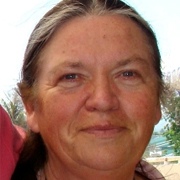HILO, Hawaii – Christmas came early for anti-GMO activists on Hawaii Island, as Mayor Billy Kenoi signed bill 113 into law. The ordinance bans new genetically engineered crops from being grown on the Big Island.
It was a highly anticipated decision – perhaps the most anticipated since the mayor first took office in late 2008. Employees working for the administration said they have been besieged by calls from both sides of the issue ever since the Hawaii County Council passed the measure a few weeks ago. Up until Thursday, no one knew for sure whether or not the mayor would veto the bill.
Many of the supporters of bill 113 already began to lobby individual councilmembers to override the veto, should it come to pass. But it never did. Instead, the mayor’s office issued a message around 3 p.m. Thursday, announcing Kenoi had signed the bill into law.
“After careful deliberation and discussions with members of my administration and the public,” the mayor wrote, “I am signing Bill 113.”
The mayor was not around to comment on his decision when we stopped by the office on Thursday. He was already on his way to Florida, to cheer on his thirteen year old son, Justin, and the rest of the Panaewa Alii Football Team, at the Pop Warner Super Bowl in Kissimmee.
The mayor made the announcement on Wednesday that he would be leaving to take the trip, which further fueled speculation over how he would handle bill 113. The deadline for the mayor to veto was on Friday, December 6th. “Maybe Wally Lau will sign the bill,” hoped Geoffrey Shaw on Facebook after he heard the news of Kenoi’s trip.
“Is the mayor really going to cop out on GMO ban?” wrote a more pessimistic Aina Campbell. “Say it ain’t so.”
But the mayor handled it himself before leaving. In his message to the county council, the mayor said, “With this new ordinance we are conveying that instead of global agribusiness corporations, we want to encourage and support community-based farming and ranching.”
The mayor also said that debate over the bill has at times been divisive and hurtful, and said that some “hard-working farmers who produce food for the community have been treated disrespectfully.” The mayor pledged to protect every farmer and rancher, and said the county is “determined to reunite our farming community to create a stronger and more vibrant agricultural sector.” He said it is time to end the angry rhetoric and reach out to neighbors.
Now that the bill has been signed into law, the mayor said the county will launch a year of research and data collection to investigate factual claims concerning biotech, and that they will “monitor the impacts of this bill over the next year to separate speculation and guesswork from the facts.”
The internet exploded with messages of joy – and sorrow – over the mayor’s decision.
Councilwoman Margaret Wille, who crafted the bill, expressed thanks to the mayor, borrowing a Kenoi campaign slogan to say “together we can, and today together we did take an important step towards preserving and protecting our precious island.”
Not every one was happy, though. Michael Shintaku, who has penned some widely read pieces in support of biotech science, wrote on our website that the mayor’s decision was “not science-based but fear based” and that the ban “makes very little sense.”
Still, the new law doesn’t mean the island will be GMO free. Transgenic papaya and GMO corn have been grandfathered in, and remain completely legal crops on Hawaii Island.
Mayor Kenoi’s decision to sign bill 113 into law also allows him the political advantage of escaping the fate of Kauai Mayor Bernard Carvalho, who vetoed a bill passed by the Kauai County Council relating to the disclosure of pesticide use and genetically modified crops on that island.
The veto was overridden, but not before an incident in Lihue. An angry crowd held the Kauai mayor accountable for his decision, which he said he made because the bill was legally flawed. In the wake of that scene, the state tried to step in to provide support. The Department of Agriculture reaffirmed Mayor Carvalho’s assessment, and promised to implement guidelines for companies regarding pesticide disclosure. The state also exerted some pressure on Hawaii County to strike down their bill banning GMO’s.
Its expected that the GMO debate will be taken up again at the state legislature, and its possible that state lawmakers could try to preempt what the county has done.


by Big Island Video News8:47 am
on at
STORY SUMMARY
HILO, Hawaii – Christmas came early for anti-GMO activists on Hawaii Island, as Mayor Billy Kenoi signed bill 113 into law. The ordinance bans new genetically engineered crops from being grown on the Big Island. It was a highly anticipated decision – perhaps the most anticipated since the mayor first took office in late 2008. […]